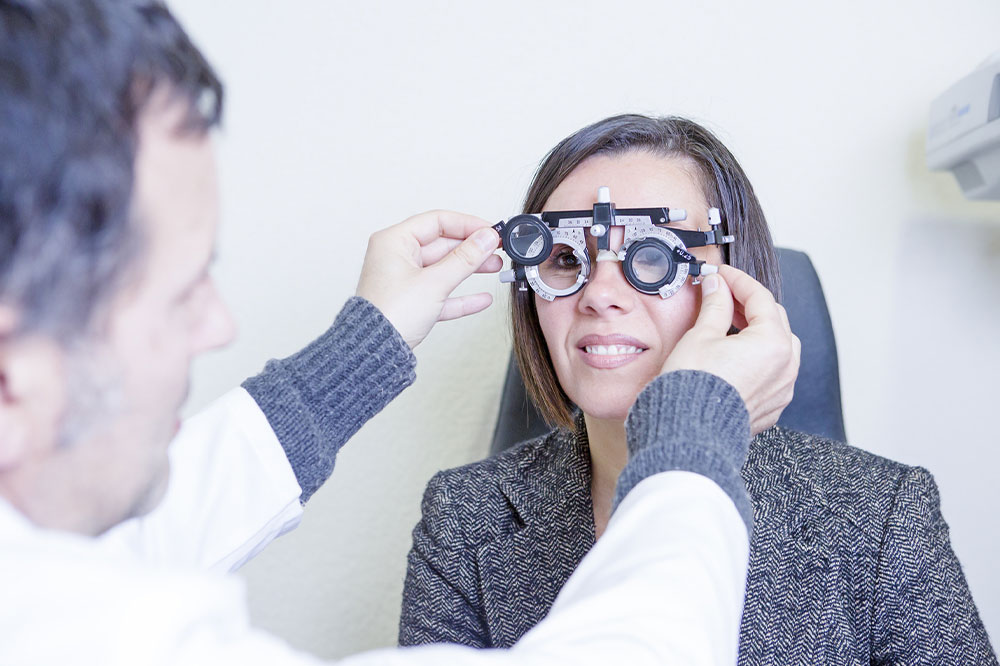
Double vision – Causes, symptoms, and more
Double vision, or diplopia, is a condition where patients can spot two images of the same object. This condition may affect individuals in one or both eyes and can be accompanied by other symptoms like nausea, headache, and weakness. Doctors typically recommend a CT scan or MRI, blood tests, and physical examinations to diagnose the disease. This article provides an in-depth insight into sudden double vision, its causes, symptoms, diagnosis, and more.
Causes of sudden double vision
Cataracts
One of the most common underlying causes of sudden double vision is cataracts, which is characterized by clouding of the eye lens due to aging. Typically, the eye lens, situated behind the pupil, changes shape while focusing, causing extreme discomfort and, often, sudden double vision.
Astigmatism
Another leading cause of double vision is astigmatism, wherein the cornea or lens is more curved than it should be. Such curvature causes vision distortions, often culminating in symptoms such as double vision.
Squint
A squint or strabismus is a condition in which both eyes look in different directions. One of the most common and surefire symptoms of a squint is double vision. An untreated squint can increase the frequency of double-vision occurrences.
Brain tumor
Brain tumors, particularly those occurring on the occipital lobe, can lead to vision problems, including sudden double vision. It can also be accompanied by restricted eye movements and blurred vision.
Ocular migraine
Ocular or retinal migraine is a rare health condition involving compromised vision for short spells of time. Ocular migraine may be caused by various factors, including weather change, poor food intake, elevated stress levels, and hormonal changes, and can also lead to double vision.
Signs and symptoms of double vision
Headache
Sudden double vision can often cause severe headaches owing to several neural connections between the eyes and the head. Many individuals experience intense migraine headaches during spells of double vision.
Nausea
Double vision caused by the lack of eye movement coordination can lead to nausea and vomiting. Studies have found a strong association between the eyes and the gut; hence, problems in one may trigger issues in the other.
Dizziness
Double vision can often lead to severe dizziness due to compromised vision.
Eye pain
Individuals with double vision may often experience eye pain, particularly during eye movement.
How is double vision diagnosed?
To diagnose double vision, doctors typically perform a physical examination and consultation with an ophthalmologist or optometrist. Moreover, if it is caused by binocular diplopia, one may also need to undergo other examinations, such as MRI and CT scans. Such tests provide a holistic view of the eyes and allow for a better analysis of the condition’s underlying causes. Following the diagnosis, the patient must follow a systematic treatment course under the close supervision of an ophthalmologist.
Treatment options and remedies for double vision
Occlusion therapy
Ophthalmologists may recommend occlusion therapy as an effective intervention for double vision. It involves wearing an eye patch over one eye, directly blocking vision from the other in an effort to reduce double vision. A soft patch with an elastic band is the common recommendation.
Prism lenses or glasses
Prism lenses or glasses are specialized glass or plastic eye products that change the direction of light reflection, redirecting it to the right spot in the cornea. This intervention can remedy sudden double vision.
Surgical procedures
Sometimes, in extreme cases, a surgical procedure may be carried out to treat muscular problems, which can trigger or worsen double vision.
Treatment of other health conditions
Sometimes, treating other health conditions may improve eye health and contribute to healing conditions like double vision. Thus, doctors may recommend interventions for conditions like diabetes, sinus problems, myasthenia gravis and other neurological issues, brain cancer, and other related issues a patient may have.
Eye exercises
Some eye exercises, such as dot-card exercises and stereogram exercises, may help control the symptoms and reduce pain and discomfort associated with the condition.
Foods for better vision and eye health
Cold-water fish
Cold-water fish like salmon, tuna, and mackerel are packed with omega-3 fatty acids, protecting against cataracts and other diseases that often cause double vision.
Carrots
Carrots are rich sources of lutein and beta-carotene, both of which are excellent antioxidants for eye health.
Leafy green vegetables
Leafy greens like spinach, kale, collard greens, and broccoli are rich in the antioxidants zeaxanthin and lutein, which help with improved vision. They are also packed with essential vitamins, including vitamins A, C, and K.
Eggs
Besides being excellent protein sources, eggs also contain lutein, zeaxanthin, zinc, and vitamin A, which significantly enhance eye health.
Citrus fruits
Citrus fruits like oranges, cantaloupes, and grapefruit are rich in vitamin C, an essential nutrient for healthy eye blood vessels.




